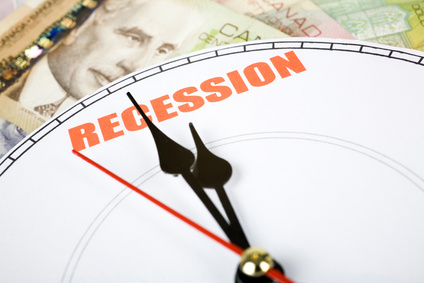Closer scrutiny of Canadian economy doesn’t pass the recession test

Tuesday’s growth figures were disappointing, to be sure, but they hardly betoken a recession. The much overused “two consecutive quarters of GDP decline” is merely a rule of thumb, and it’s at odds with the more nuanced definition used by economic and statistics agencies. A more careful scrutiny of the Canadian economy won’t pass the recession test.
Contrary to popular belief, neither Statistics Canada nor the National Bureau of Economic Research (NBER) uses “two consecutive quarters of GDP decline” as their definition of a recession. The latter, the worldwide authority concerning economic cycles, defines a recession as “a significant decline in economic activity spread across the economy, lasting more than a few months, normally visible in real GDP, real income, employment, industrial production and wholesale-retail sales.”
Based on this definition, Canada is clearly not in a recession. The current economic slowdown is not spread across the economy, but concentrated in the energy-producing provinces, Alberta first and foremost, and driven primarily by the falling price of oil. In Canada as a whole, employment has not declined, and both industrial production and wholesale-retail sales figures are still growing. Furthermore, the most important element of a recession is probably its depth and severity. The economic contraction of 0.2 per cent in the first quarter and 0.1 per cent in the second is not by any means significant enough to register as a recession yet.
It is not clear how the popular “two consecutive quarters of GDP decline” has emerged as a rule of thumb, but both Statistics Canada and the NBER repudiate it; monthly and even quarterly data are just too noisy to provide an accurate picture of the underlying cyclical trend.
The speed with which some commentators are jumping to declare a recession is also at odds with academic and statistical practices. The subprime crisis that began in December, 2007, was not recognized as a recession by the NBER until 11 months after it began. Its official end in June, 2009, was not declared until September, 2010, 15 months after the fact. The immediacy of the federal election campaign should not distract us from maintaining sound academic and statistical practices. Cooler heads should prevail.
History does offer other examples of consecutive quarters of economic decline that did not qualify as recessions. The year 1946 in the United States saw a decline in economic activity ranging, depending on the source, anywhere between 7.8 per cent and 19 per cent – yet economists unanimously agree that there was no recession that year. This is because there was no general decline in economic activity, merely a sharp drop in government military spending with the end of the Second World War.
To take the opposite case, we also have examples of recessions that do not feature two consecutive quarters of economic decline. The recession of the early 2000s in the United States did not feature two consecutive quarters in the red, as its quarterly growth curve was jagged, alternating between growth and regression. Yet once again, virtually all economists would agree that the United States did experience a recession in the early 2000s. Two quarters of economic decline are neither a sufficient nor a necessary condition for defining a recession.
Even if, for one reason or another, we would still want to use the rule of thumb rather than the full, more subtle definition, we should be very careful about pretending we’re experiencing a recession when the Bank of Canada and the IMF’s projections both predict positive economic growth in Canada for 2015 as a whole. Both institutions expect improvements in the U.S. economic outlook in the second quarter to spill over into Canada. There’s a profound irony in talking recession while GDP has grown 0.5 per cent in June alone, and annual forecasts are still calling for positive growth.
Rules of thumb can be useful in general, straightforward cases, but current economic conditions in Canada are anything but a general, straightforward case. It is a particular case of a resource-based economy being affected by the depreciation of a single good and a slowing worldwide demand for natural resources in general. It is ill-advised to talk about a recession when the price of oil drops, just as it does not make economic sense to talk about inflation when its price rises.
Let’s keep our concepts clear: The economic slowdown we’ve experienced over the first few months of the year does not qualify as a recession.
Mathieu Bédard is Economist at the Montreal Economic Institute. The views reflected in this op-ed are his own.

